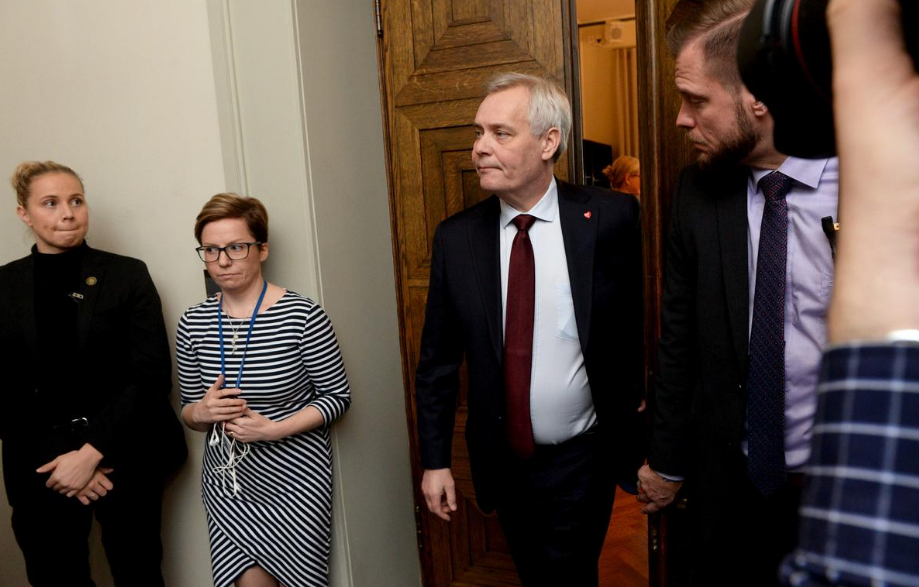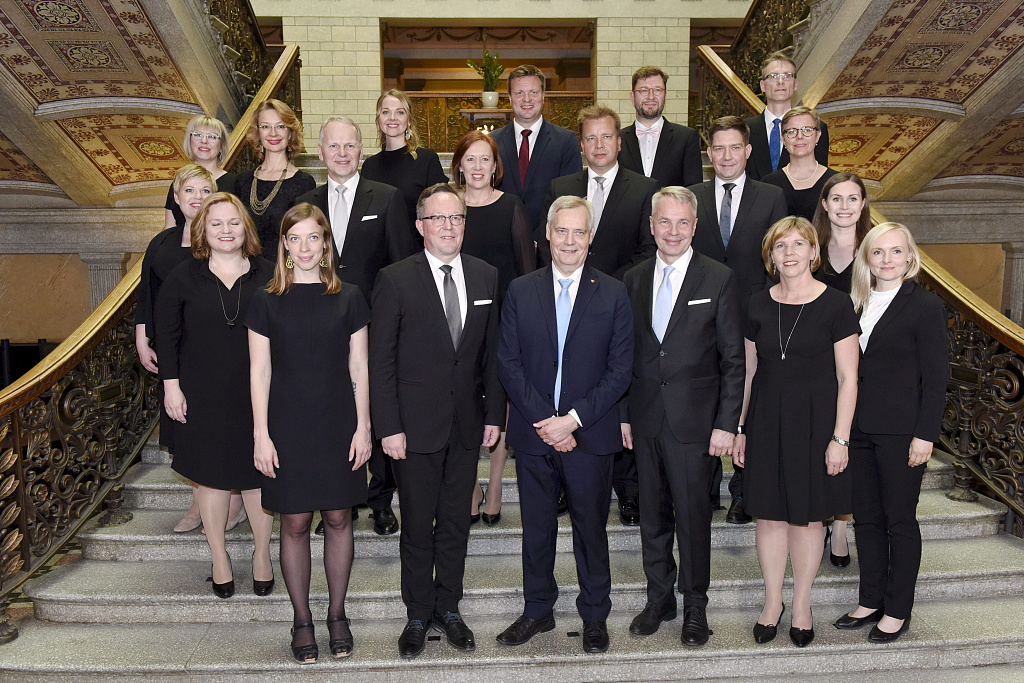Finnish Prime Minister Antti Rinne resigned on Tuesday after losing the support of a coalition partner, casting doubts on the future of the governing alliance.
"I accept your resignation request, but at the same time, I ask your cabinet to continue as a caretaker government until a new government is in place," Finnish President Sauli Niinisto said during a meeting with Rinne at the presidential residency after accepting his resignation.
Social Democrat Rinne found himself in a difficult place after the Finnish Centre Party, one of the coalition parties, decided to withdraw its backing for Rinne on Monday, saying its party had lost confidence in coalition with the prime minister.
"Losing confidence" is not a formal procedure, like a vote of no-confidence, and the Centre Party's move was not directed at the Social Democratic Party (SDP) but specifically at Rinne. Katri Kulmuni, chairwoman of the Centre Party, said Monday her party wanted to remain in the coalition, but questioned Rinne's role in handling the strike.
The strike spread to the national airline, Finnair, and to other industries before being settled last week.

Finnish Prime Minister Antti Rinne leaves a meeting of the SDP parliamentary group at the parliament, Helsinki, Finland, December 3, 2019. /Reuters Photo
Finnish Prime Minister Antti Rinne leaves a meeting of the SDP parliamentary group at the parliament, Helsinki, Finland, December 3, 2019. /Reuters Photo
The timing of the crisis is awkward. Finland holds the rotating presidency of the EU until the end of the year, playing a central role in efforts to hammer out a new budget for the bloc.
The SDP will now appoint a successor to try to form a new government. Sanna Marin, the party's number two behind Rinne and the current minister of transport, has already said she would be willing to take over.
The Centre Party is now considering whether to pull its support for the five-party coalition, a move that could lead to a snap election.
However, analysts say the Centre Party is unlikely to push for a new election. As the party and coalition allies are trailing in the polls and could lose ground to the nationalist Finns Party.
The Finns came second in last April's election, just behind Rinne's Social Democrats.

Ministers of the new Finnish government pose for a photo, Helsinki, Finland, June 6, 2019. /VCG Photo
Ministers of the new Finnish government pose for a photo, Helsinki, Finland, June 6, 2019. /VCG Photo
Rinne's resignation comes after several weeks of political crisis over a plan to move 700 employees of Finland Post, a public limited company with the state as sole shareholder, to a less advantageous collective wage agreement to improve competitiveness.
In September, criticism initially focused on the minister in charge of state ownership, Sirpa Paatero, a member of Rinne's party.
The crisis deepened in November when a large strike broke out, with employees of other industries walking off the job in sympathy with the postal employees, which is permitted under Finnish labor law.
Unions had demanded to know whether the state had approved Finland Post's reform. Paatero made several contradictory remarks before Rinne stepped in on November 28.
The prime minister denied that the state had approved Finland Post's plan, but the following day the company's chairman of the board accused Rinne of lying. Rinne then announced Paatero's resignation, but the move was seen as too little too late.
(With input from agencies)
(Cover: Finnish Prime Minister Antti Rinne speaks to the media after arriving at the EU headquarters for an EU summit, Brussels, Belgium, October 17, 2019. /VCG Photo)